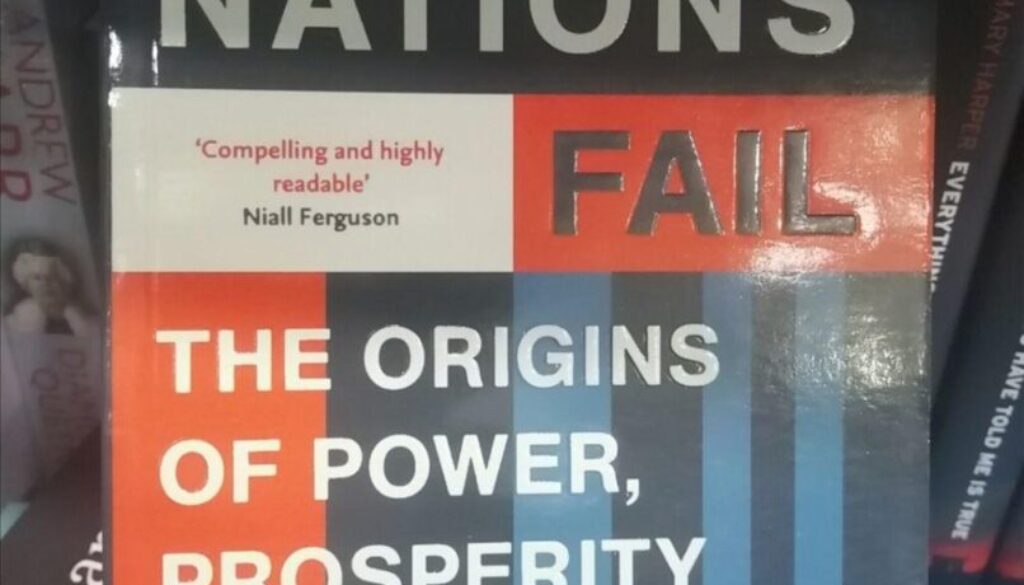

I would recommend this book to anyone considering PPE, Economics, Geography or History and Politics. I didn’t find it too academic or hard to read it was really accessible. It is especially interesting for anyone who is interested in the sources of poverty and inequality, along with the history of colonialism and feudalism. African developing nations, but touching on places across the world such as Asia, South America and Eastern Europe.

This book is particularly interesting because it explains the theory with a huge range of historical examples from the past 200 years plus, focusing not just on the traditional western Europe and the USA vs. Virtuous circles of innovation, expansion and peace are formed from inclusive institutions which form a cycle of increasing prosperity. Essentially, good (inclusive) institutions enable investment and a sense of security in the government and the economic system and so nations prosper, but bad (extractive) institutions do not.

government, market system), and not because of their climates, geography or culture. It argues that some nations are wealthier and more prosperous than others because of their political and economic institutions (e.g. I picked up Why Nations Fail because it linked several subjects that I was interested in – mainly politics and economics, but it also includes geography, history and some philosophy.


 0 kommentar(er)
0 kommentar(er)
